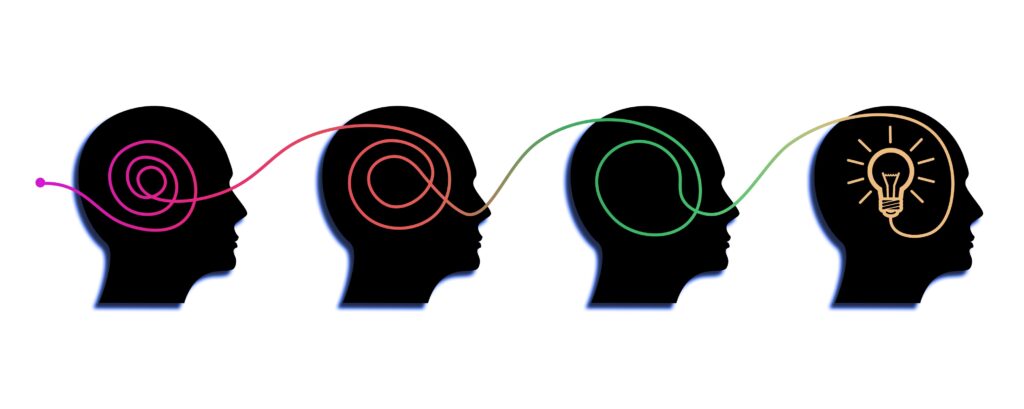The process of ensuring that individuals receive the appropriate psychiatric medications for their health conditions, at the right time, and in the right dose is called medication management. Medication management is one of the primary functions of psychiatrists and psychiatric nurse practitioners. It’s a complex process that requires the collaboration of different healthcare professionals, including psychiatrists. Medication management is a vital aspect of healthcare that helps to improve the quality of life of people with various health conditions, particularly mental health disorders.
Medication management is an essential component of mental health treatment. Whether you are a parent struggling to help your child manage their diagnosis, or someone looking for alternative treatments for treatment-resistant diagnoses, understanding and properly managing medications can make all the difference in improving overall wellness. At Neuro Wellness Spa we understand that medication and talk therapy aren’t the only options when it comes to treating mental illness, which is why our expertly trained clinical teams provide innovative mental health treatments such as transcranial magnetic stimulation alongside personalized medication management plans.

What is Medication Management?
Medication management is an evidence-based approach to treating mental health conditions that uses medication as part of an overall treatment plan. The goal is to reduce symptoms and improve functioning while minimizing side effects and risks associated with taking certain types of psychiatric medications. A psychiatrist or other medical professional oversees this process, ensuring that the right type and dose of medication are prescribed for each individual’s unique needs.
Psychiatric Medication Management
Psychiatrists are medical doctors who specialize in the diagnosis, treatment, and management of mental health disorders. They play a critical role in medication management for mental health conditions by prescribing medication, monitoring their patients’ response to medication, and adjusting medication as needed.
Here are some ways in which psychiatrists can help with medication management for mental health disorders:
Conducting a Thorough Evaluation
A psychiatrist will conduct a thorough evaluation of a patient’s symptoms, medical history, and current health status to determine the most appropriate medication for their mental health disorder. This can help to ensure that patients receive the appropriate medication for their condition, at the right dose.
Prescribing Medication
A psychiatrist can prescribe psychiatric medication for mental illnesses, such as antidepressants including selective serotonin reuptake inhibitors, antipsychotics, mood stabilizers, and anti-anxiety medications (anxiolytics). They will determine the most appropriate medication for their patients based on their evaluation, and they will also consider factors such as the patient’s medical history, age, and other health conditions.
Monitoring Patient Response to Medication
Once a mental health medication has been prescribed, a psychiatrist will monitor their patients’ response to medication. This can involve regular check-ins with patients, monitoring their symptoms, and tracking any side effects or adverse reactions to medication.
Adjusting Medication as Needed
If a patient is not responding well to medication or is experiencing side effects, a psychiatrist can adjust their medication as needed. This can involve changing the medication, adjusting the dose, or changing the medication schedule.
Collaborating with Other Healthcare Professionals
Medication management for mental health disorders often involves collaboration with other healthcare professionals, including primary care physicians, pharmacists, and therapists. A psychiatrist can collaborate with these professionals to ensure that all of a patient’s prescribed medications are safe to take together.

Benefits Of Medication Management
The benefits of psychiatric medications include improved symptom control, increased functioning, a better quality of life, reduced risk for mental health relapse or recurrence, and decreased hospitalizations due to psychiatric emergencies. Additionally, it can provide relief from physical pain caused by underlying psychological issues such as depression or anxiety. In some cases, it may even prevent suicide attempts in individuals at high risk for self-harm behaviors.
Prescribing medication can be an important tool for those struggling with mental health issues. It can provide a safe and effective way to manage symptoms while allowing individuals to plan and administer their treatment according to their schedule and from the comfort of their own homes.
Who Can Benefit from Medication Management?
Many people who have been diagnosed with a mental health condition can benefit from medication management. This includes individuals who are struggling to cope with their symptoms on their own or those who have tried other treatments without success. It’s important for anyone considering medication management to discuss all available options and potential pros and cons of mental health medications with their doctor before starting any new treatment plan.
Ultimately it is important for each individual person seeking help for their condition to make an informed decision based on what works best for them after consulting a qualified medical or mental health professional about all available options.
Mental Health Conditions Treated
Medication management is commonly used to treat a variety of mental health conditions, including depression, anxiety disorders, bipolar disorder, schizophrenia, post-traumatic stress disorder (PTSD), obsessive-compulsive disorder (OCD), attention deficit hyperactivity disorder (ADHD), and more. In some cases, it may also be used to help manage physical symptoms associated with these conditions.
Why is Medication Management Important for Psychiatrists?
Medication management is an integral part of comprehensive mental health services, as it can help individuals manage their symptoms and improve their overall quality of life. The role of the psychiatrist in medication management is to evaluate a patient’s mental health condition and recommend medications that will best address the individual’s needs. This includes determining which type or combination of medications will be most effective for the patient, monitoring progress over time, adjusting dosages if needed, and addressing any potential side effects or risks associated with certain medications.
How Does Medication Management Work?
It begins with an initial assessment by a qualified psychiatrist who evaluates the patient’s mental health condition and recommends a course of treatment based on their findings. This may include prescribing one or more medications to address specific symptoms related to conditions such as depression, anxiety, insomnia, etc. Medication therapy is often recommended in addition to talk therapy or psychotherapy services to further support the individual in managing their condition. The psychiatrist then monitors progress over time through regular follow-up visits to assess how well the prescribed treatments are working and make adjustments if necessary.
Risks of Mental Health Medications
Potential side effects and risks associated with taking certain types of prescription drugs should also be taken into consideration when deciding whether medication management is right for you. Common side effects of antidepressants include nausea, headache, fatigue, weight gain/loss, and GI upset; while rare but serious adverse reactions could occur such as suicidal thoughts or behavior changes (especially in children).
If you are taking any prescription medications it is important to let the provider know in case there are any drug-drug interactions. It is important to discuss these potential risks with your doctor before starting any new treatment plan so that you can make an informed decision about what is best for your unique situation.
It is also important to know that when taking medications for mental health, you may have to try several medications before finding the right dose. This can make the medication management process seem long, but when combined with medication therapy, it can eliminate symptoms of mental illness.

How to Choose the Best Psychiatrist for Your Needs
Choosing the right psychiatrist for your mental health needs is an important decision. It’s essential to find a doctor who understands your condition and can provide effective treatment.
Questions to Ask When Choosing a Psychiatrist for Your Needs
Before making an appointment, it’s important to ask questions about the psychiatrist’s experience and qualifications. Some key questions include: What type of mental health conditions do they specialize in? How long have they been practicing psychiatry? Are they board certified? Do they accept insurance or offer payment plans?
Tips for Finding the Right Psychiatrist for You
Once you have narrowed down your list of potential healthcare providers, it’s time to take the next step. Read reviews from past patients online, talk with friends or family members who may have seen them before, and check out their website if available. Also consider factors such as location, office hours, wait times, and whether they offer online psychiatry visits.
California Psychiatrists for Mediation Management
At Neuro Wellness Spa, we believe that everyone deserves access to the highest quality mental health care. That’s why our online psychiatrists in California and centers throughout Los Angeles are thoughtfully designed to provide medication management and innovative treatments like transcranial magnetic stimulation (TMS) in a safe and comfortable environment. We specialize in treating a wide range of mental health conditions including depression, anxiety disorders, bipolar disorder, obsessive-compulsive disorder (OCD), attention-deficit/hyperactivity disorder (ADHD), and more. Call Neuro Wellness Spa today to get started.
FAQ
Medication management is the process of selecting, monitoring, and adjusting medications to ensure optimal therapeutic outcomes. It involves assessing a patient’s medical history, evaluating current symptoms and needs, discussing potential risks and benefits with the patient or their family members, prescribing appropriate medications as needed, regularly monitoring for effectiveness and side effects, making adjustments when necessary based on feedback from the patient or their care team. The goal of medication management is to provide safe and effective treatment while minimizing any potential risks associated with taking multiple medications.
Medication management is an important part of mental health care because it can help to reduce symptoms, improve functioning, and provide relief from distress. It can also be used in combination with other treatments such as psychotherapy or lifestyle changes for a more comprehensive approach to managing mental health conditions. Medication management helps ensure that the medications prescribed are taken correctly and at the right doses so that they are most effective in treating the condition. Additionally, medication management provides ongoing monitoring of side effects and effectiveness so adjustments can be made if needed. Ultimately, medication management is an important part of mental health care that can help to improve overall well-being.
